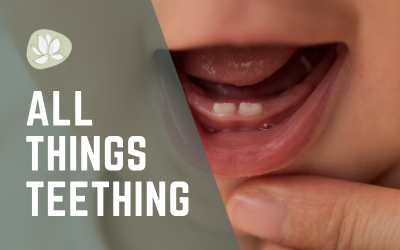In the quest for luscious locks, you may have tried every hair growth serum, vitamin supplement, and scalp massage technique in the book.
They make for great sales techniques but remember that healthy hair starts from the inside. Once a hair follicle is out of your scalp, it’s three months old, and there’s almost nothing you can do to change its growth trajectory. So, to fix and establish healthy new and continued growth, you have to look at more than what goes on your hair and focus more on what you give your body.
One primary culprit behind your lackluster tresses could be hiding in your daily diet. Surprisingly, the food you eat can play a massive role in the health of your hair, and gluten is increasingly identified as a potential enemy of robust hair growth. But how can a protein found in wheat, rye, and barley have such a drastic effect on your hair? Here’s the science and rationale behind it.
The health of your gut plays a crucial role in nutrient absorption. Poor gut health can lead to deficiencies in essential vitamins and minerals like iron, vitamin D, and zinc, which are necessary for healthy hair growth. Please don’t go grab these at the store as they are now all synthetic copycats of food and offer little to no nutritional value. We will get to supplementation. Gluten can cause inflammation in the gut lining, particularly in sensitive people, leading to conditions like leaky gut syndrome. When your gut is compromised, nutrient absorption is hindered, which in turn can affect hair growth.
For those with Celiac Disease, an autoimmune disorder, ingesting gluten can lead to various health problems, including dermatological issues. One such condition closely related to Celiac Disease is alopecia areata, an autoimmune disorder that causes hair loss on the scalp and other body parts. When individuals with Celiac Disease continue to consume gluten, their immune system mistakenly attacks various cells in their body, including hair follicles, severely affecting hair growth. Research is now also pointing to non-Celiac gluten-sensitive people having the same issue.
Gluten sensitivity is linked to hormonal imbalances in some people. Hormones like estrogen and testosterone play a significant role in hair growth and quality. Gluten’s inflammatory properties can wreak havoc on your hormone levels, causing disruptions that can lead to hair loss or thinning. This is particularly concerning for women, especially during periods of hormonal change such as menopause or pregnancy.
Inflammation and Scalp Conditions
Inflammation is one of the leading causes of hair loss, and gluten can be a significant contributor. Inflammatory reactions in the body can lead to conditions like folliculitis, which causes hair follicle inflammation. Inflamed hair follicles are weaker and less capable of supporting steady hair growth, leading to thinner, more fragile hair strands.
Whole grains that contain gluten displace other nutrient-rich foods that support hair growth, like fruits, vegetables, and lean proteins. When your diet is high in gluten-rich grains, you’re likely missing out on essential food-based nutrients like vitamin E, omega-3 fatty acids, and antioxidants. These compounds not only support hair growth but also protect the hair follicles from oxidative stress and inflammation. Getting sufficient protein (at LEAST 100 grams per day) is essential as hair is primarily made up of a protein called keratin. You must eat adequate protein to create protein.
Hydration: Drinking adequate water is crucial for overall health, including the health of your hair. Dehydration can make your hair dry, brittle, and more prone to breakage. Staying hydrated helps maintain the moisture balance in your hair, promoting its strength and elasticity. General rules are your body weight cut in 1/2 in ounces – but also adding minerals to your water – I love to add a pinch of
Redmond Real Salt to each glass!
Scalp Health: Your scalp’s health directly affects your hair’s health. An unhealthy scalp, characterized by dandruff, excessive oiliness, or inflammation, can disrupt the hair growth cycle. Maintaining a clean and well-moisturized scalp through regular washing with organic, gluten-free products, avoiding excessive product buildup, and addressing scalp issues can help promote healthier hair. Internal scalp support or disruption is also usually linked to how healthy your gut is! Maintaining a healthy gut is crucial to any skin irritation or condition and can directly impact your scalp as a growth environment for hair follicles. You can start your gut health path with my
Gut Healing Protocol!
Indirect Effects Through Stress
Psychological and lifestyle factors can impact hair health. Chronic stress can lead to hair loss or thinning by disrupting the hair’s growth cycle. Poor lifestyle habits, such as smoking, excessive alcohol consumption, and lack of sleep, can also negatively affect hair health. For those with gluten sensitivity or intolerance, consuming gluten can cause uncomfortable symptoms, including headaches, fatigue, and digestive issues. Dealing with these symptoms can be stress-inducing, and we all know stress’s toll on our bodies. Stress hormones like cortisol can disrupt the hair growth cycle, leading to a condition known as telogen effluvium, characterized by widespread thinning of the hair. It’s a negative process of imbalance that must be addressed on several levels.
Personal Anecdotes and Clinical Reports
While more extensive studies are needed to establish the direct relationship between gluten and poor hair growth conclusively, a growing number of personal anecdotes and clinical reports suggest that removing gluten from one’s diet has significantly improved hair quality and growth.
Although gluten may not affect everyone’s hair growth, it is clear that it can have a significant impact, especially on those with gluten sensitivities or Celiac Disease. It might be worth investigating your diet if you have unexplained hair loss or poor hair growth. Want to test to see if this is an issue for you? Order a gluten test
here!
Remember, your diet is an integral part of your overall well-being, and what you consume can significantly impact your internal health and your external appearance.
So overall, start with ditching GLUTEN for at least 6 months. This will allow your body to have one round of hair particles come through without fighting the gluten damage.
When you are ready for the next step, book a New Patient Phone Consult with me here!




Recent Comments